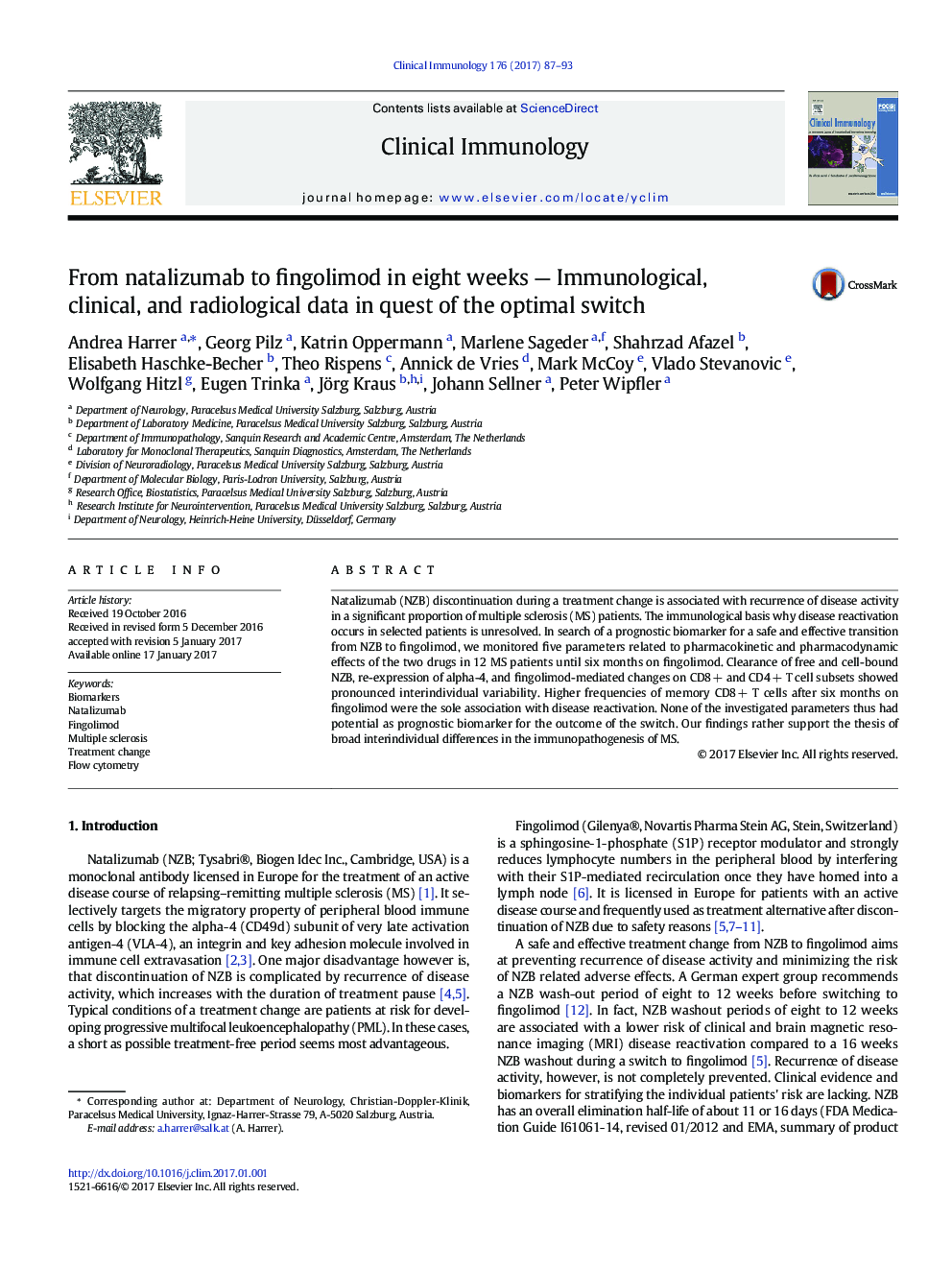| Article ID | Journal | Published Year | Pages | File Type |
|---|---|---|---|---|
| 5654928 | Clinical Immunology | 2017 | 7 Pages |
â¢Parameters related to pharmacokinetic/-dynamic effects on cells were investigated.â¢Interindividual variability was pronounced but not related to disease reactivation.â¢Overlap of treatments on cellular level did not prevent disease reactivation.â¢Higher reexpression of alpha-4 was not associated with recurrence of disease activity.â¢A prognostic biomarker for a safe transition from NZB to fingolimod was not found.
Natalizumab (NZB) discontinuation during a treatment change is associated with recurrence of disease activity in a significant proportion of multiple sclerosis (MS) patients. The immunological basis why disease reactivation occurs in selected patients is unresolved. In search of a prognostic biomarker for a safe and effective transition from NZB to fingolimod, we monitored five parameters related to pharmacokinetic and pharmacodynamic effects of the two drugs in 12 MS patients until six months on fingolimod. Clearance of free and cell-bound NZB, re-expression of alpha-4, and fingolimod-mediated changes on CD8Â + and CD4Â + T cell subsets showed pronounced interindividual variability. Higher frequencies of memory CD8Â + T cells after six months on fingolimod were the sole association with disease reactivation. None of the investigated parameters thus had potential as prognostic biomarker for the outcome of the switch. Our findings rather support the thesis of broad interindividual differences in the immunopathogenesis of MS.
